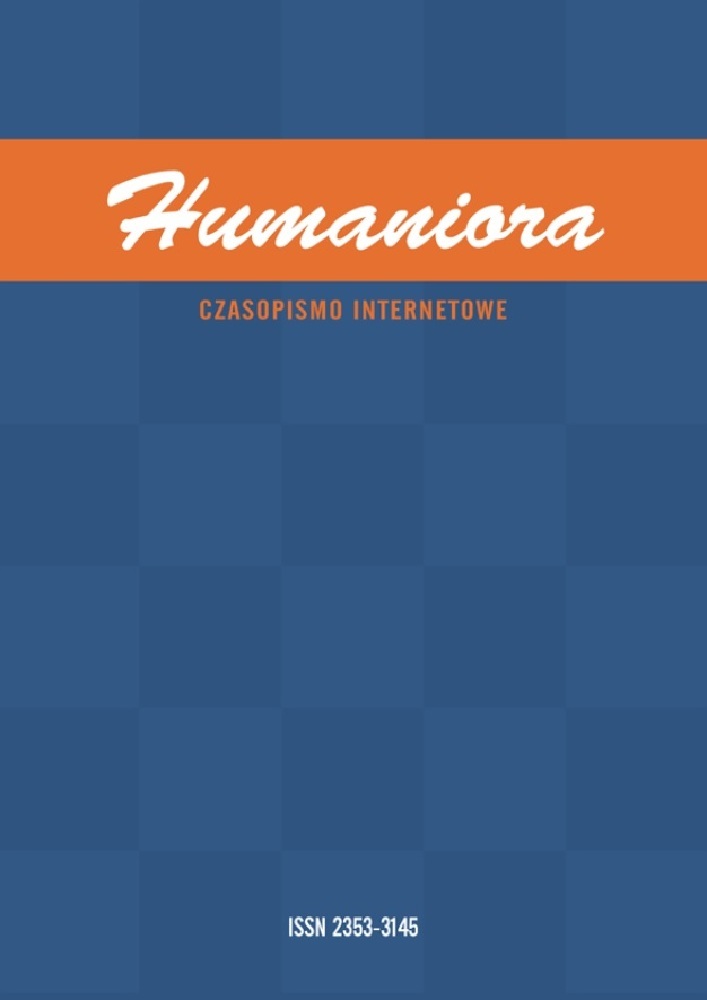Abstract
One of the more controversial issues was and still is the picture of God and heaven as taken by the philosophers. Today, without a great effort we may be able to find such who openly claim that there is no God and the belief his in existence is (to use the term by R. Dawkins) a human “delusion.” However heaven does exist but it is a part of the natural world. In the times of Descartes such philosophers and scholars also did occur. Nevertheless they were not numerous and so unimportant that we may ignore them. Descartes wasn’t one of them. His philosophy was acknowledged and still is by many specialists in the philosophical tradition as groundbraking and influential. Since this very moment of its emergence deep controversies had arised among others by the issue of carthesian picture of God and heaven. In these remarks I do recall several of them. My general thesis can be summed up by the stand point that in the carthesian system God had been assigned with an important but not central role. The central role had been reserved for sich a man that wants and is able to use his/hers own intellect.
References
Cottingham J., Cartesian dualism: theology, metaphysics, and science, w: The Cambridge Companion to Descartes, Cambridge University Press, Cambridge–New York 1992.
Cottingham J., Introduction, w: The Cambridge Companion to Descartes, Cambridge University Press, Cambridge–New York 1992.
Descartes R., Dioptryka, Wydanie W. Babijczuk, Wrocław 2008.
Descartes R., List do Voetiusa, Wydawnictwo Naukowe PWN, Warszawa 1998.
Descartes R., Medytacje o pierwszej filozofii, Antyk, Kęty 2001.
Descartes R., Meteory, Wydanie W. Babijczuk, Wrocław 2010.
Descartes R., Prawidła kierowania umysłem, PWN, Warszawa 1958.
Descartes R., Rozprawa o metodzie właściwego kierowania rozumem i poszukiwania prawdy w naukach, PWN, Warszawa 1970.
Drozdowicz Z., Kartezjański racjonalizm. Zrozumieć Kartezjusza, Wydawnictwo Fundacji Humaniora, Poznań 2014.
Drozdowicz Z., Magisterium wiedzy i magisterium wiary. Złożenia, uzasadnienia, zastrzeżenia, „Przegląd Religioznawczy” 2021, nr 4.
Gilson E., Bóg i filozofia, Instytut Wydawniczy Pax, Warszawa 1961.
Heilbron J.L., The Dilemmas of an Upright Man: Max Planck and the Fortunes of German Science, Harvard University Press, Cambridge, Massachusettes, London 2000.
Heller M., Bóg i geometria. Gdy przestrzeń była Bogiem, Copernicus Center Press, Kraków 2015.
Himmelfarbe G., The Roads to Modernity. The British, French, and American Enlightenments, Alfred A. Knopf Press, New York 2004.
Kondylis P., Die Aufklärung im Rahmen des neuzeitlichen Rationalismus, Dtv Klett-Gotta, München 1986.
La Mettrie J.O., Człowiek-maszyna, PWN, Warszawa 1984.
Loebe L.E., The Cartesian cirle, w: The Cambridge Companion to Descartes, Cambridge Uniwersity Press, Cambridge–New York 1992.
Newberg A., Principles of Neuroteology, Ashgate Publising Company, Burlington 2010.
Planck M., Prawo przyczynowości a wolność woli, w: Nowe drogi poznania fizycznego a filozofia, Wydawnictwo IFiS PAN, Warszawa 2003.
Spink J.S., Libertynizm francuski od Gassendiego do Voltaire’a, Książka i Wiedza, Warszawa 1974.
Spinoza B., Etyka w porządku geometrycznym dowiedziona i na pięć części podzielona, w: Traktaty, Antyk, Kęty, 2003.
Spinoza B., Zasady filozofii Kartezjusza w dwóch częściach, w: Pisma wczesne, PWN, Warszawa 1969.
Usakiewicz J., Wstęp do: R. Descartes, List do Voetiusa, Wydawnictwo Naukowe PWN, Warszawa 1998.
Voltaire, Elementy filozofii Newtona, PWN, Warszawa 1956.
Voltaire, Listy o Anglikach albo Listy filozoficzne, PIW, Warszawa1953.
License
Czasopismo oraz wszystkie zamieszczone w nim materiały są powszechnie dostępne i mogą być wykorzystywane do celów naukowych, edukacyjnych, poznawczych i niekomercyjnych bez konieczności uzyskiwania każdorazowej zgody autorów i redakcji. Nadesłanie artykułu do publikacji traktowane jest jako zgoda autora na udostępnienie swojej pracy i informacji w niej zawartych do powyżej wymienionych celów. W takich przypadkach należy jedynie wskazać źródło, z którego zaczerpnięte zostały informacje. Pobieranie opłat za dostęp do materiałów zawartych w czasopiśmie lub ograniczanie do niego dostępu jest zabronione.
Przesyłane do redakcji teksty muszą stanowić oryginalne prace, uprzednio nigdzie niepublikowane ani nie przedkładane innym redakcjom lub wydawcom. Autorzy nadsyłanych artykułów ponoszą odpowiedzialność za uzyskanie zezwoleń na publikowanie materiałów, do których prawa autorskie są w posiadaniu osób trzecich. Publikacja materiałów chronionych prawem autorskim jest możliwa pod warunkiem uprzedniego dostarczenia przez autora do redakcji pisemnej zgody właściciela praw autorskich.





